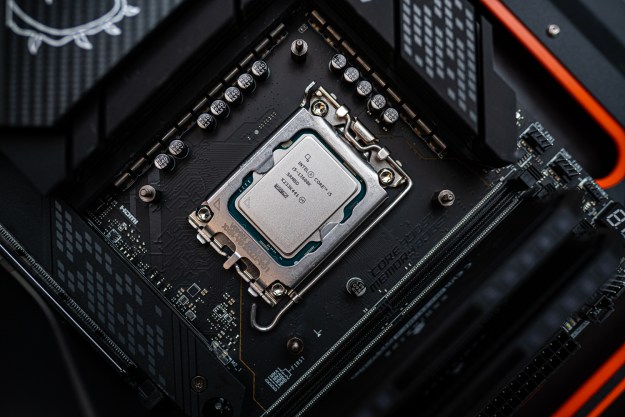
Naples marks AMD’s “return” to the server market to address the current “radical” changes in the datacenter. Businesses and large corporations are moving away from the traditional tower for managing email, databases, and files to solutions rooted in the cloud, which could physically reside thousands of miles away. There is a heavy demand by mainstream users too who store their photos, video, and other files on servers they will never see.
“The growth of off-premise IT infrastructure means companies with tens, hundreds, thousands and tens of thousands of employees may not own a single server,” he said. “They lease their infrastructure, their applications, and their IT services, often from facilities thousands of miles away. Billion dollar businesses serve millions of customers simultaneously via server farms the size of several football fields. And, protecting consumer data is a number one concern touching every part of the ecosystem.”
Through the evolution of the datacenter, users, operating systems, and applications are “decoupled” from hardware due to virtualization. However, Norrod notes that containers have extended this service by offering a huge number of micro-services via dynamic resource allocation. He also notes that due to offering IT as a service, the cloud, and mega datacenters are now fueling technology innovation.
Of course, the foundation powering all these cloud-based services in the datacenter is the processor. With solutions like the upcoming Naples processor, servers with one CPU (1P) can now match the computational power of servers with two processors (2P). Plus, the more cores a processor has, the better it can efficiently provision services across more users. The total cost of ownership is down, too.
“GPUs and other accelerators supporting the CPU will become fundamental building blocks of computing,” he said. “A host of new applications incorporating deep neural networks and machine learning, artificial intelligence, virtual and augmented reality will be supported in the datacenter by combinations of GPUs, CPUs and FPGAs.”
According to Norrod, Naples was designed for all of these datacenter transitions in mind. The underlying “Zen” architecture was four years in the making, created from scratch to promise up to 40 percent more instructions per clock than the previous “Excavator” generation of server-focused processors. Some of the highlights include simultaneous multithreading (a first for an AMD server CPU), a new cache hierarchy, increased I/O and memory capabilities, and an “industry-leading security solution.”
Benchmarks of the upcoming 32-core Naples chip leaked online in September. The numbers were based on an engineering sample listed as “2S1451A4VIHE4_29/14_N” stuffed into a motherboard codenamed as “AMD Corporation Diesel.” Based on Ubuntu 16.04 LTS, the Naples platform scored 1,141 in a single-core test and a 15,620 in a multi-core test.
AMD’s Naples platform will compete with Intel’s Xeon E7-8800/4800 V5 and Xeon E5-2600/4600 V5 platforms when it arrives during this half of 2017. Naples is expected to consume between 125 and 150 watts of power.
Editors' Recommendations
- AMD Zen 5: Everything we know about AMD’s next-gen CPUs
- Nice try, Intel, but AMD 3D V-Cache chips still win
- AMD’s new CPU slammed as ‘anti-consumer at best’
- AMD may finally launch what we’ve all been waiting for later this year
- AMD’s new CPUs let you play Cyberpunk without a graphics card



